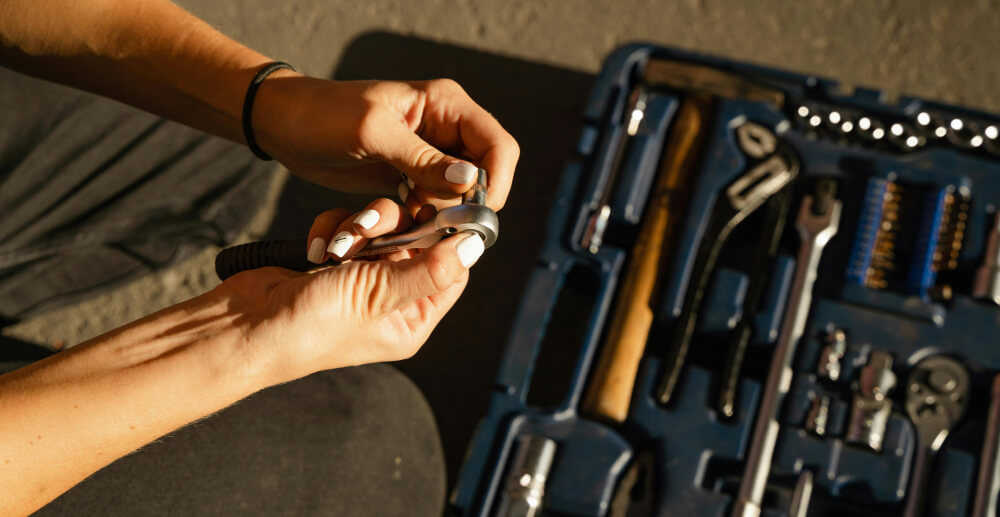Learning to care for ourselves isn’t easy, especially if we have spent years abusing our body with disordered eating.
Even though we may have stopped harming ourselves, the process of recovery goes beyond stopping that behavior. We need to learn how to take care of our needs. In my experience, I only ever knew how to respond to my need for nourishment with food. I never considered that nourishment needed to involve taking care of my whole self: my mind, body, and spirit.
Even though I’m now a few years into recovery and have learned how to take care of my needs adequately, the added pressure of the holidays can trigger old behaviors. Namely the desire to numb out and escape. Family dysfunction, comparing myself to my successful siblings, low self-esteem, sensory overload, relationship difficulties, stress, social anxiety, people pleasing, self-hate, needing time out—these are all triggers which can lead to some pretty overwhelming emotions. In those situations, most people would want to escape. If you’re in recovery from disordered eating, then engaging in old patterns can have an especially destructive effect. Before we know it, we’re back into a cycle of behavior feeling shame, guilt, and self-hatred.
“Family dysfunction, comparing myself to my successful siblings, low self-esteem, sensory overload, relationship difficulties, stress, social anxiety, people pleasing, self-hate, needing time out—these are all triggers which can lead to some pretty overwhelming emotions.”
It seems inevitable, but it doesn’t have to be that way. What if we used our known triggers to develop a self-care strategy and some solutions to cope with our strong emotions and feelings? It is that easy.
First, I’d like you to think about what you can do proactively. Think about the challenges you might face. Then move on to list your favorite stress-relief tools that calm your whole being. These tools could be yoga, working out, meditating, journaling, talking, therapy, affirmations. Now I’d like you to plan to do these over the holiday. Make them non-negotiable activities. Block them out in your calendar, and don’t let any other demands impinge on them. This is time for you.
You might find that you will be more centered if you are adequately taking care of your needs and nourishing your whole body. From a calm state, we can be less reactive and less likely to give into urges to engage in destructive patterns of behavior.
However, we are human and we make mistakes. Sometimes we’ll be triggered—even people who have been practicing self-care for years can get triggered. It is important to know that not one of us is perfect. And just because we feel triggered, doesn’t mean we have to react. There are a long list of responses and solutions to feeling triggered. Here are a few:
1. Family dysfunction
Solution: Set and maintain clear boundaries. Ensure that you protect yourself. Either leave or take time out of situations which make you feel uncomfortable.
2. Stress/overwhelm
Solution: Create space, pause, breathe. Try to meditate for 5-10 minutes. Go for a walk. List your worries and tasks—what has to be done today, and what can wait or be given to someone else? Be sure to check in with your body and find out what it is telling you. Are you tired? Have you eaten a meal, or have you been running on empty and drinking coffee? Do you need a rest? Take time to listen and respond.
3. Relationship difficulties
Solution: Take a step back and ask for a moment to compose your thoughts. Return to the issue at a later time. Do not try to resolve difficulties in the heat of the moment.
4. Social anxiety
Solution: Ask yourself before the event if you really want to go. Develop an exit strategy—park your car close by, take a friend, tell the host you can only visit for a short while. If you feel anxious while there, take a break and remind yourself that you are under no pressure to manage the flow of the conversation. Remember that you can leave at any time.
5. Desire to numb out
Solution: When this desire arises, acknowledge it. You can witness it without acting on it. Try to resist the urge. Check in with your body and see what it is experiencing. How do your emotions feel? Do they have a thought associated with them? Do they have a texture, color, or sensation? Ask your body what it is really asking for—are you tired, or hungry? Do you need a break? Or do you need a nourishing meal? Just because you have the urge does not mean you cannot resist it.
6. Self-hate from overeating
Solution: First, forgive yourself. Show yourself the compassion you would show to a sick friend. Be loving, kind, and gentle. Hold your hand and get right back on track. Do something that nurtures yourself without food.
It might be worth making a list of your triggers and some solutions so that you are prepared for these eventualities. Most of all, give yourself a break. Know that if you take care of yourself, you’re less likely to engage in disordered eating.




